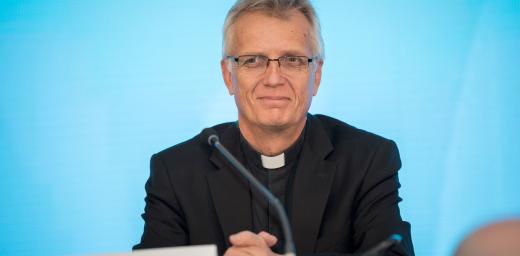Anne Burghardt: Hearing God’s word in a secular society
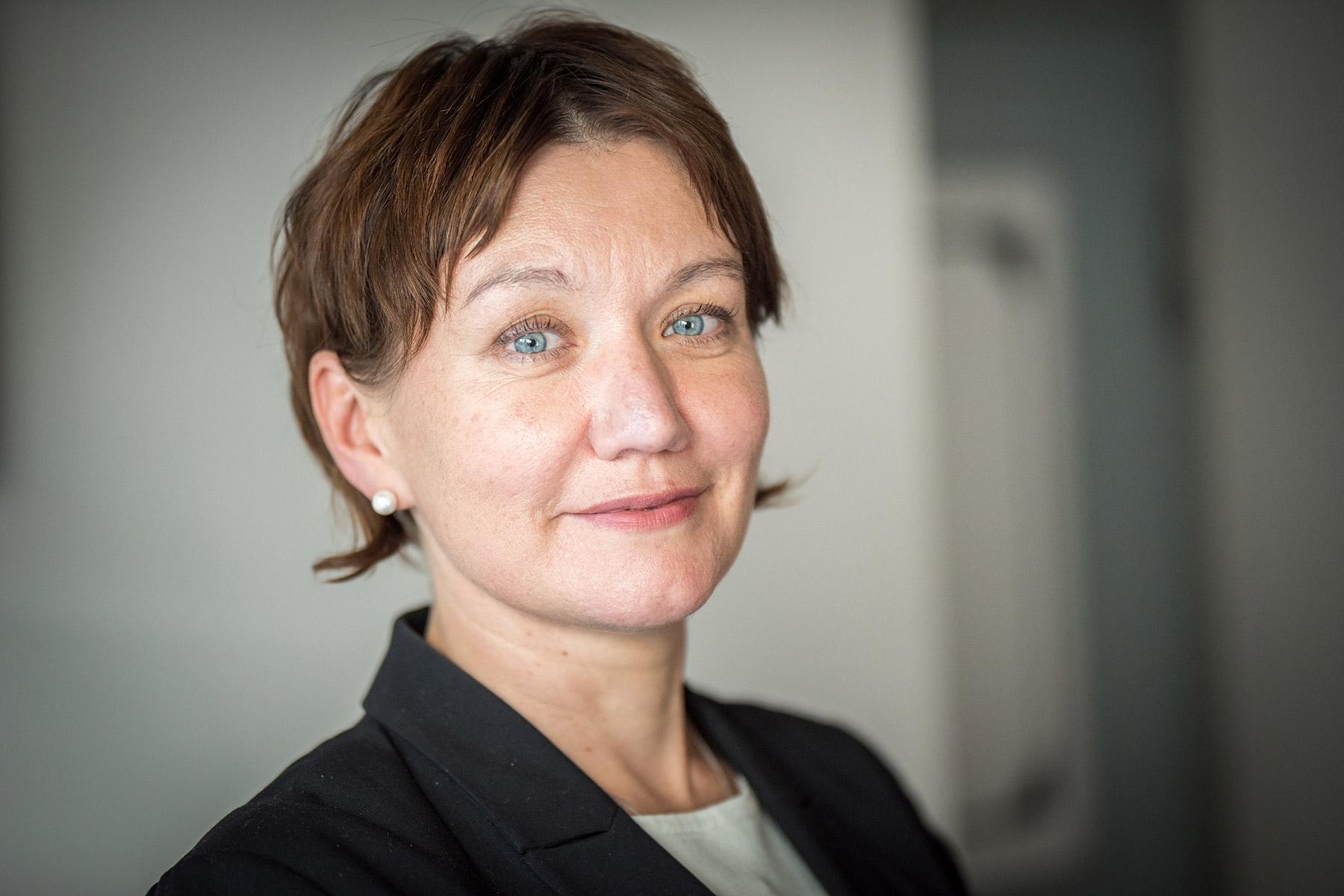
LWFâs new general secretary, Rev. Anne Burghardt of the Estonian Evangelical Lutheran Church. Photo: LWF/A. Hillert
Introducing LWF’s new general secretary who shares snapshots of her family life and faith journey
(LWI) - Estonia is often seen as one of the world’s most secular countries “so something I will definitely bring is an experience of being able to participate in God’s mission and share the word of God to people in such a secular society.” Meet Rev. Anne Burghardt from the Estonian Evangelical Lutheran Church, who took up her new role as General Secretary of The Lutheran World Federation (LWF) on 1 November.
Born in 1975, during the era of Soviet occupation, she grew up in a secularized family environment herself. While her grandparents had been active members of the Lutheran church, her father, along with her aunt and grandmother, were deported to Siberia in 1949. "Many who went through these experiences were very cautious of being involved in anything that could be interpreted as being disloyal to the State,” Burghardt explains, with the result that “they kept a distance between their children and the church.”
I sensed I wanted to serve the church with the gifts I’d been given.
It was an invitation to a confirmation class from a high school friend that set her on the path to ordination – a path she says she would have struggled to believe “if someone had suggested it to me 30 years ago.” Her school was one of the few in Estonia that allowed religious education classes and her discussions with classmates and friends sparked an interest in religious questions. “Everyone was looking for an identity, both on a national level and, in a certain sense, at a personal level too,” she recalls.
Reflecting on her own faith journey, Burghardt says some people experience “a path of natural growth in a Christian family.” A few have sudden conversions “like the Apostle Paul.” Then there is “the path where I belong, a path of slow growth through many questions, but through this moving forward, step by step, being grounded more deeply in the faith.” In 2004, ten years on from that high school invitation, she says: “I found myself at St. Mary’s Cathedral in Tallinn [Estonian: Toomkirik] being ordained as a pastor, as I sensed I wanted to serve the church with the gifts I’d been given.”
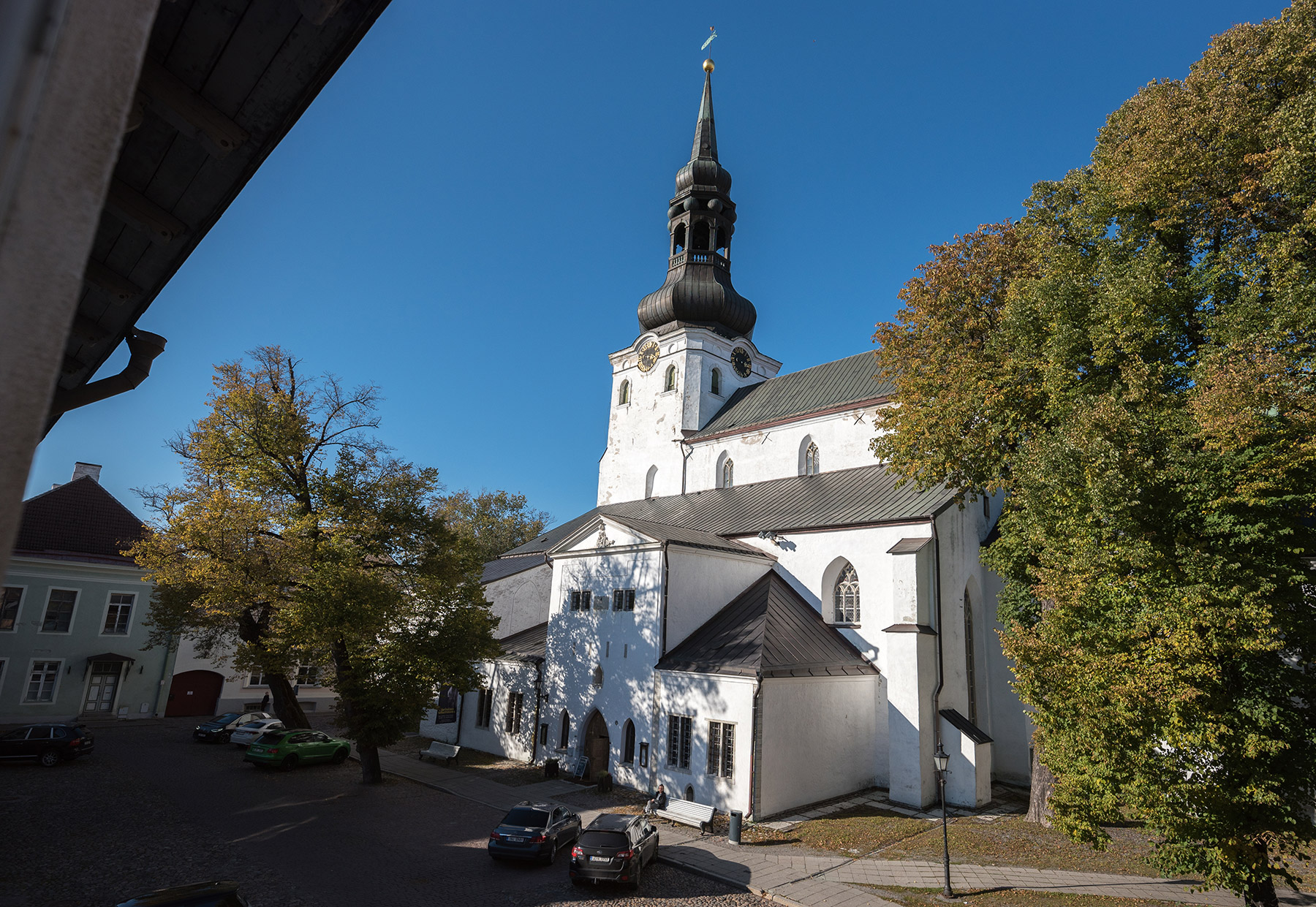
The Toomkirik [St Mary’s Cathedral] in Tallinn where Rev. Anne Burghardt was ordained in 2004. Photo: LWF/A. Hillert
In the intervening decade, Burghardt studied theology at the prestigious University of Tartu, spending time also in Germany at the Humboldt University in Berlin and the Erlangen-Nürnberg University in Bavaria, where she worked on her PhD in Orthodox liturgics. “I have submitted my dissertation on the topic of the Interpretation of the All-Night-Vigil in the Russian Orthodox Church,” she notes. Before ordination, she did two years of pastoral training at the Estonian Evangelical Lutheran Church’s Institute of Theology and she has been closely connected to that institute ever since.
One of her key innovations there was the development of a Master’s program called ‘Studies in Christian Culture.’ It was designed, she says, as “an academic mission” to those working in the secular world, but wanting to know more about their Christian history and traditions. Many of these people “lack the basics of religious language,” Burghardt notes, “so we wanted to offer a curriculum which enables them to understand how Christianity has impacted European culture and, more broadly, the underlying influences of this tradition.”
Education for critical thinking
The program has been hugely successful, building on the legacy of the Institute which stayed open during the Soviet era. Burghardt stresses that throughout that period, the Institute provided “academic education ensuring that pastors would be trained to think in differentiated ways, not just in black and white responses.” Today, she continues, “when many societies are confronting increased polarization, it is very important that the church – through its proclamation, its work with people – is not supporting this black and white paradigm, but [rather] a more differentiated way of approaching things.”
Education for critical thinking is a cornerstone of Burghardt’s understanding of the church’s mission in contemporary society. She hopes to support the strengthening of LWF’s theological education and formation network, making material widely available for students lacking “access to proper training and critical thinking.” She will also be drawing on her experience of research and training in diverse fields including conflict resolution, HIV counselling and community development in disadvantaged rural areas.
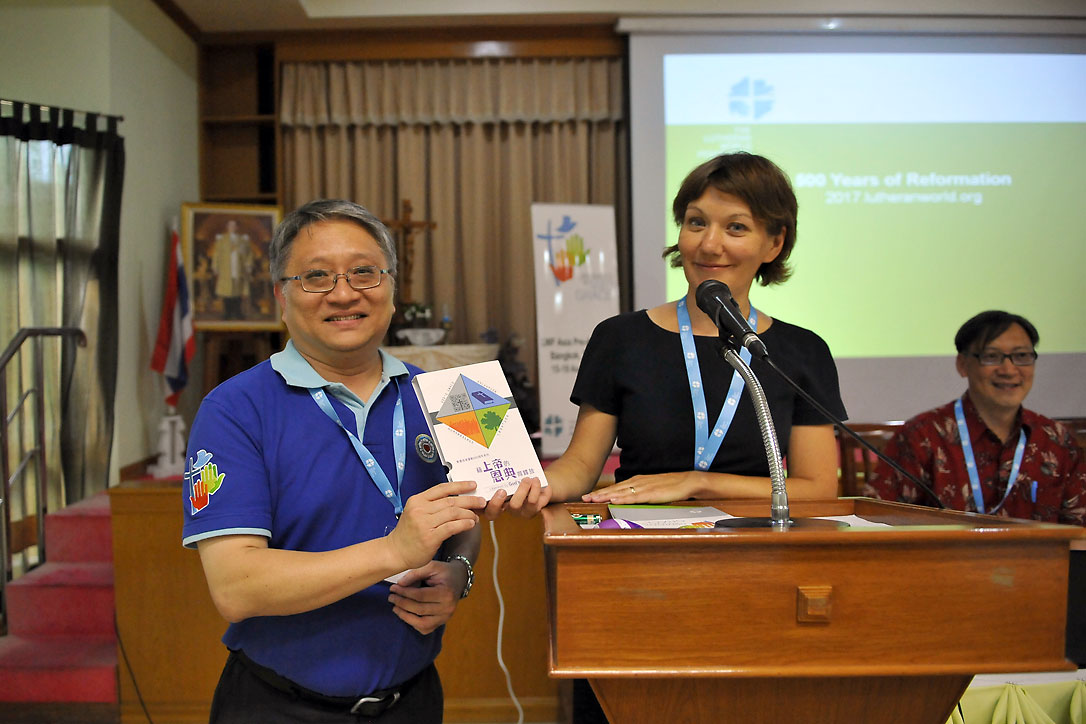
As LWF’s Study Secretary for Ecumenical Relations in 2016, Rev. Anne Burghardt presents the Chinese translation of the Reformation anniversary booklets with Bishop Ben Chun Wa Chang of the Evangelical Lutheran Church of Hong Kong. Photo: LWF/A. Danielsson
Ecumenism is another area of expertise for the new general secretary, who previously worked for five years at the Communion Office in Geneva as LWF’s Study Secretary for Ecumenical Relations. In that role, she oversaw relations with Anglicans, Mennonites, Orthodox and Pentecostal Christians. During that period, she also coordinated preparations for the 500th anniversary of the Reformation and worked to coordinate material for the 2017 LWF Assembly in Namibia.
Strengthening theological discussion around the Lutheran understanding of ordination is also on the agenda for Burghardt, in order to support churches that are moving towards including women in the ordained ministry and in leadership positions. As the first woman to lead the LWF, she says “I do believe that in many regions and in many churches, there are women who feel encouraged through this example.”
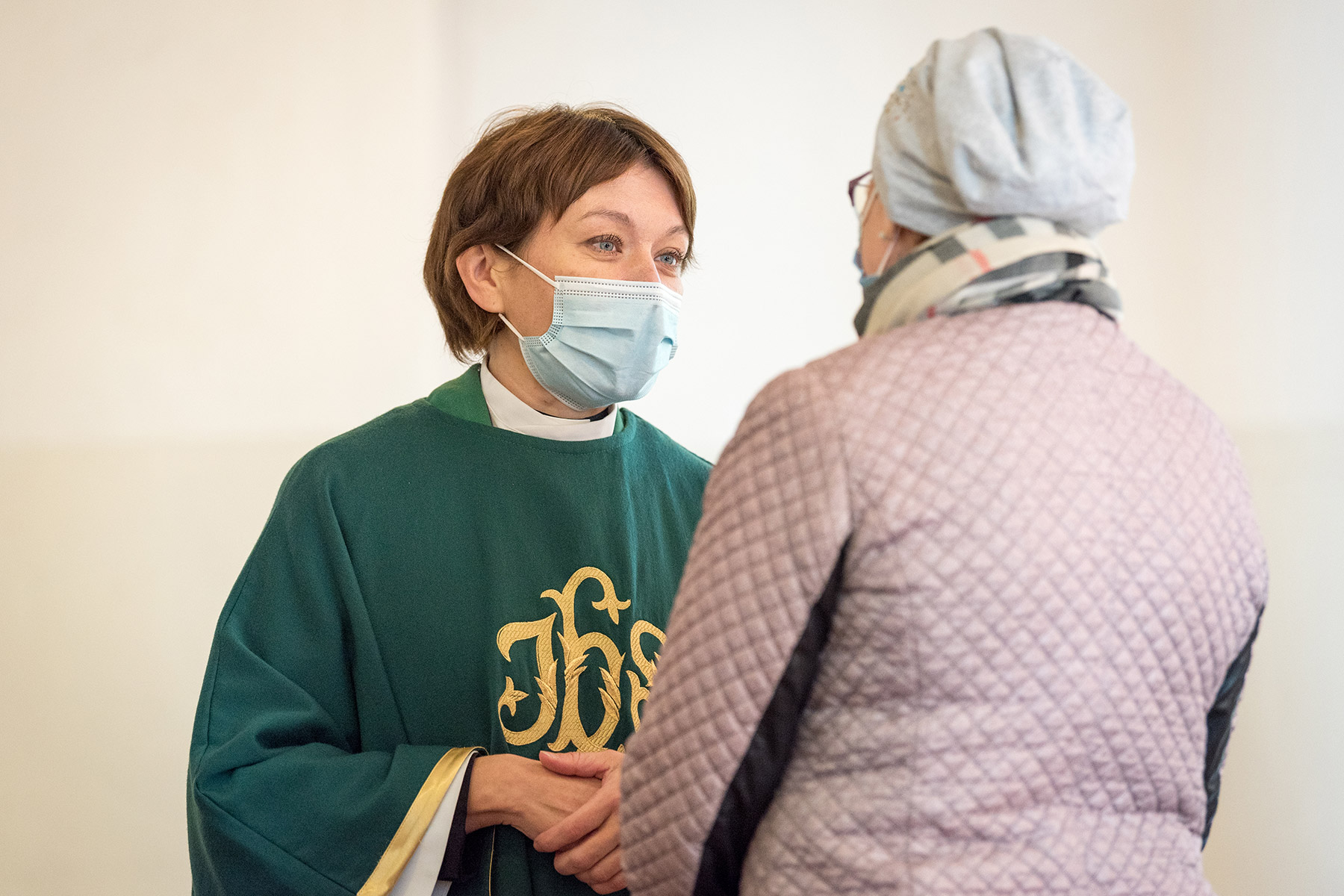
Rev. Anne Burghardt speaks with a parishioner after the Sunday service at St Nicholas Church in the former Soviet military base of Paldiski, Estonia. Photo: LWF/A. Hillert
Alongside her most recent roles as Development Director at the Institute of Theology and advisor to her church on ecumenical and international relations, Burghardt has been serving as a vicar of the Lääne-Harju deanery, primarily in two congregations close to Tallinn. One is a small community in the former military base of Paldiski, the other is a flourishing parish in the town of Keila, where her husband, Rev. Matthias Burghardt, serves as the lead pastor.
The couple have two children, aged 17 and 10, plus a strong support network of family and friends who, the LWF leader says, have been invaluable in helping them “to manage the logistical puzzle” of her move to Geneva. A third adopted child, Johannes, a former Palestinian refugee whom they welcomed into their family, now lives in Germany and has a six-year-old daughter.
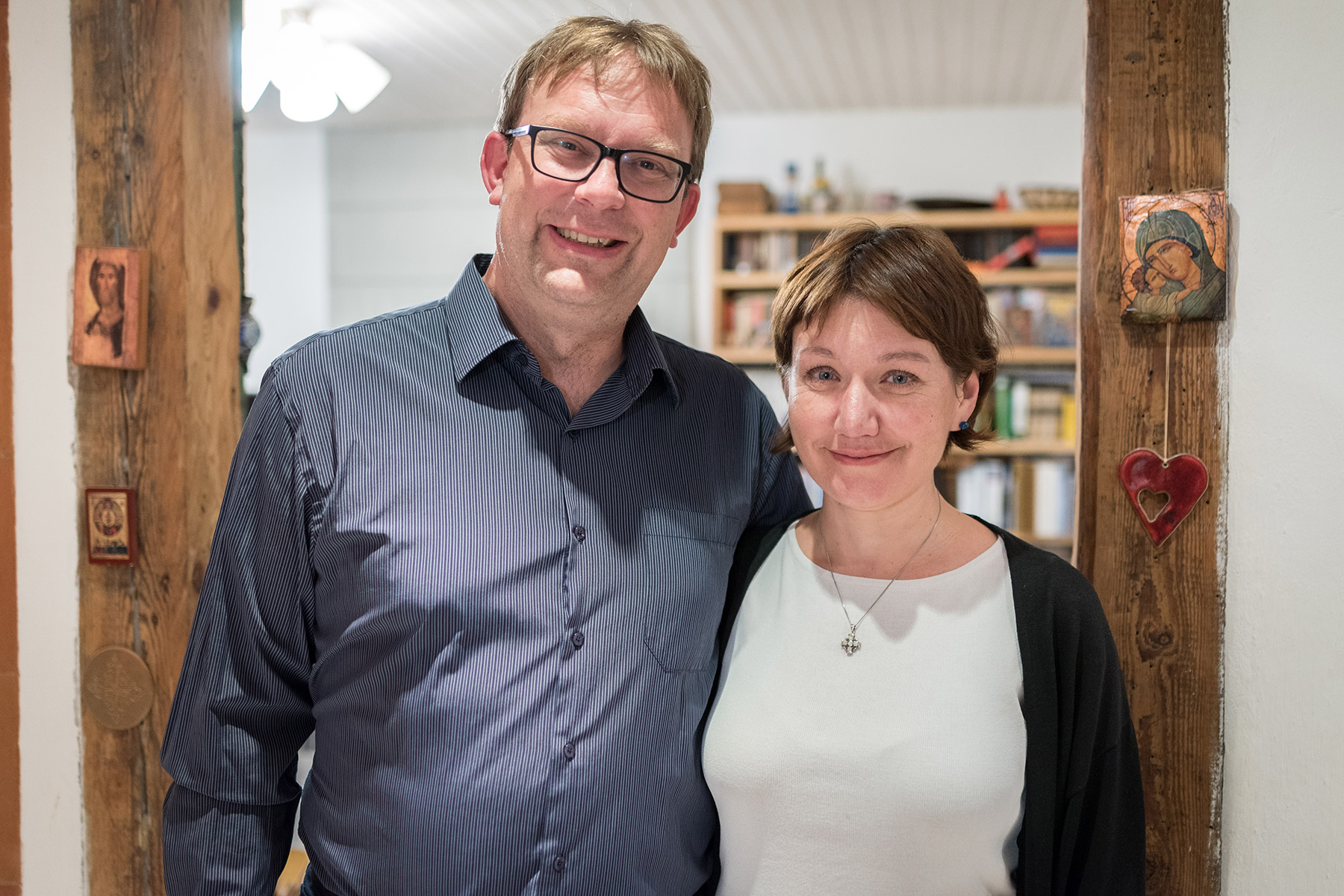
Rev. Anne Burghardt with her husband, Rev Matthias Burghardt, at their home in Tallinn. Photo: LWF/A. Hillert
Family support has been a blessing in Burghardt’s life since the beginning. Despite her lack of church upbringing as a child, she recalls that her parents “left me a lot of space for my own decisions,” including the unexpected choice to study theology. To this day, she remembers her father’s words when she shared with them her decision to train as a pastor: “This is not a heritage I have been able to be a part of, but if your grandparents had been alive today, I know they would have rejoiced in this decision.” A decision in which the global communion of Lutheran churches also rejoices today.
LWF/P. Hitchen


